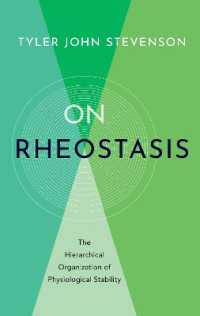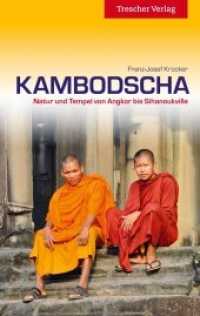- ホーム
- > 洋書
- > 英文書
- > Politics / International Relations
Full Description
As Brazilian democracy faces a crisis of legitimacy, political divisions grow among Catholic, evangelical, and non-religious citizens. What has caused religious polarization in Brazilian politics? Does religious politics shore up or undermine democracy? Religion and Brazilian Democracy: Mobilizing the People of God uses engaging anecdotes and draws on a wealth of data from surveys and survey experiments with clergy, citizens, and legislators, to explain the causes and consequences of Brazil's 'culture wars'. Though political parties create culture war conflict in established democracies, in Brazil's weak party system religious leaders instead drive divisions. Clergy leverage legislative and electoral politics strategically to promote their own theological goals and to help their religious groups compete. In the process, they often lead politicians and congregants. Ultimately, religious politics pushes Brazilian politics rightward and further fragments parties. Yet Religion and Brazilian Democracy also demonstrates that clergy-led politics stabilizes Brazilian democracy and enhances representation.
Contents
Part I. Introduction: 1. Introduction; 2. Clergy, congregants, and religious politicians; 3. Methods and case studies; Part II. What Clergy Think, Say, and Do: 4. What clergy think and say: religious teachings and political views; 5. What clergy do: encouraging partisan and electoral politics; Part III. How Congregants Respond: 6. Church influence on citizens' policy views and partisanship; 7. Church influence on voting behavior; 8. Church influence on citizen support for democracy; Part IV. Representation: 9. The representational triangle; 10. Conclusion: mobilizing the people of God.








